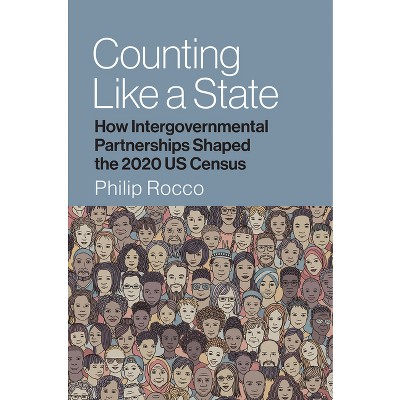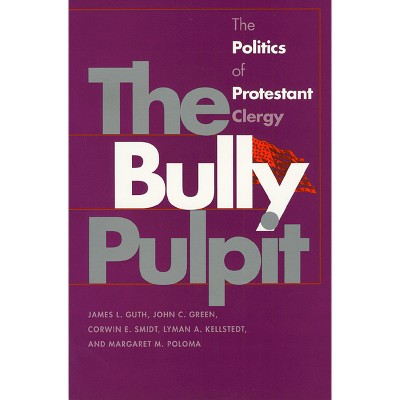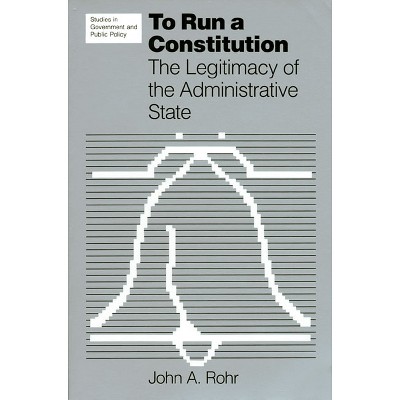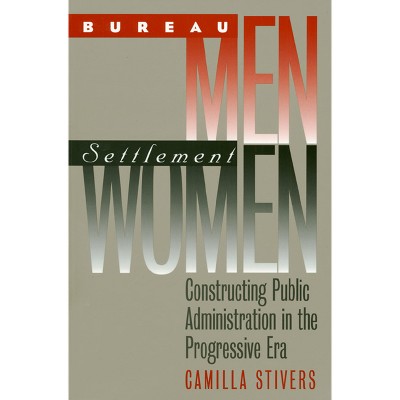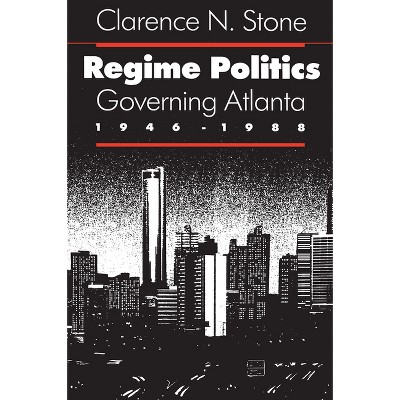Sponsored

No Child Left Behind and the Transformation of Federal Education Policy, 1965-2005 - (Studies in Government and Public Policy) by Patrick J McGuinn
In Stock
Sponsored
About this item
Highlights
- Choice Outstanding TitleEducation is intimately connected to many of the most important and contentious questions confronting American society, from race to jobs to taxes, and the competitive pressures of the global economy have only enhanced its significance.
- Author(s): Patrick J McGuinn
- 272 Pages
- Education, Administration
- Series Name: Studies in Government and Public Policy
Description
Book Synopsis
Choice Outstanding Title
Education is intimately connected to many of the most important and contentious questions confronting American society, from race to jobs to taxes, and the competitive pressures of the global economy have only enhanced its significance. Elementary and secondary schooling has long been the province of state and local governments; but when George W. Bush signed into law the No Child Left Behind Act in 2002, it signaled an unprecedented expansion of the federal role in public education.
This book provides the first balanced, in-depth analysis of how No Child Left Behind (NCLB) became law. Patrick McGuinn, a political scientist with hands-on experience in secondary education, explains how this happened despite the country's long history of decentralized school governance and the longstanding opposition of both liberals and conservatives to an active, reform-oriented federal role in schools. His book provides the essential political context for understanding NCLB, the controversies surrounding its implementation, and forthcoming debates over its reauthorization.
Using education as a case study of national policymaking, McGuinn also shows how the struggle to define the federal role in school reform took center stage in debates over the appropriate role of the government in promoting opportunity and social welfare. He places the evolution of the federal role in schools within the context of broader institutional, ideological, and political changes that have swept the nation since the 1965 Elementary and Secondary Education Act, chronicles the concerns raised by the 1983 report A Nation at Risk, and shows how education became a major campaign issue for both parties in the 1990s. McGuinn argues that the emergence of swing issues such as education can facilitate major policy change even as they influence the direction of wider political debates and partisan conflict.
While Democrats, with an eye toward social equity, won the debate over federal activism, Republicans and New Democrats were eventually successful in focusing government intervention on accountability for academic achievement. McGuinn traces the Republican shift from seeking to eliminate the U.S. Department of Education to embracing federal leadership in school reform, then details the negotiations over NCLB, the forces that shaped its final provisions, and the ways in which the law constitutes a new federal education policy regime--against which states have now begun to rebel. He argues that the expanded federal role in schools is probably here to stay and that only by understanding the unique dynamics of national education politics will reformers be able to craft a more effective national role in school reform.
Review Quotes
"[This book] reframes the debate over the federal intervention in educational policy and is an excellent example of how scholarship can inform contemporary policy and political controversies."--Perspectives on Politics
"A meticulous account of the coming of NCLB and the accompanying paradigm shift in American education policy. . . . McGuinn gives us a detailed and unusually compelling account of school reform discourse over the last fifty years. . . . An invaluable book."--H-Net Reviews
"An extremely useful and thoroughly researched volume on how federal educational policy has come into being over the past decades. Further, it is written in a lively and engaging style that marks it as a standout among similar texts. Yet, the most important aspect of the work is what it suggests for the future of educational policy--namely that increased federal control through No Child Left Behind is creating a profound legacy that will influence all future reform efforts at the federal, state, and local levels."--Teachers College Record
"This book is required reading for students, scholars, and policymakers who seek a historical account of the evolving federal role in education. McGuinn provides great launching pads for several discussions about the policy and politics that Washington's efforts have fostered. . . . [His] account will help focus debates over the tensions between equity and excellence and the government's ability to promote both. The book will also inform discussions about how federal education policy has influenced the American federal system more generally. . . . McGuinn provides a great vehicle for informing debates about how subsequent federal education efforts will likely affect relationships across the American federal system."--Political Science Quarterly
"McGuinn shows readers the necessity of a historical analysis of American politics and public policymaking to understand the federalization of education policy and law in No Child Left Behind. . . . . "--Choice
"A smoothly written, historically rich, politically savvy, and conceptually enlightening analysis of a set of political dynamics that have altered the American landscape of educational governance and of federalism itself."--Jeffrey Henig, author of Rethinking School Choice
"McGuinn provides an insightful historical analysis of the politics of education over the last forty years--explaining how Republicans came to accept a strong role for the federal government, how Democrats came to accept the need for school accountability, and how No Child Left Behind came to be adopted despite the opposition of powerful interests. This is a book that is both informative and enlightening."--Terry Moe, author of Politics, Markets, and America's Schools
"In reader-friendly prose notable for its telling detail, McGuinn sketches the landscape, the actors, and the agendas that took America from 'A Nation at Risk' to the world of No Child Left Behind. This is a must-read for those who would understand the federal role in school improvement and the road that lies ahead."--Frederick M. Hess, Director, Education Policy Studies, American Enterprise Institute
"Must reading for anyone interested in the historical origins and recent political developments regarding No Child Left Behind."--Maris A. Vinovskis, author of History and Educational Policymaking
Shipping details
Return details
Trending Non-Fiction






